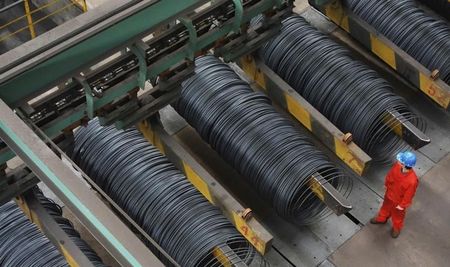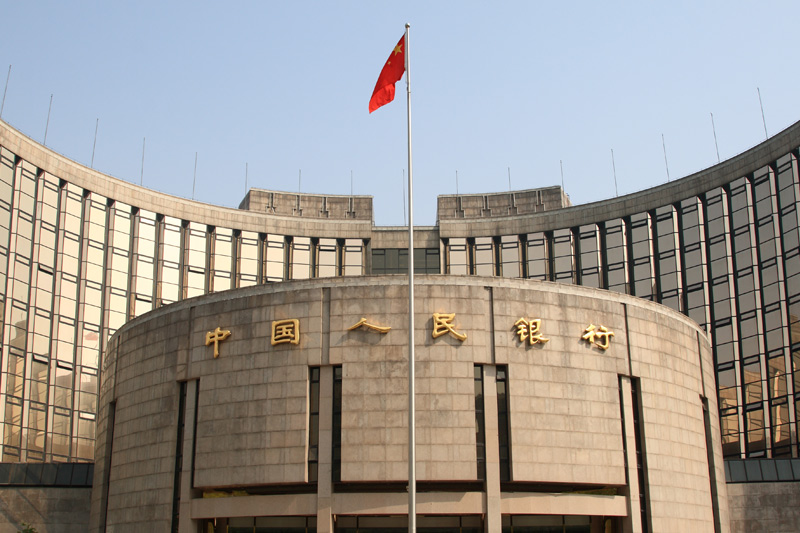By Koh Gui Qing BEIJING (Reuters) - China's economy probably will grow at its slowest pace in 24 years this year, expanding by 7.4 percent, as government stimulus measures fail to fully offset the drag from a sluggish housing market, a Reuters poll showed.
Growth in the world's second-biggest economy is forecast to dip slightly in the third and fourth quarters to 7.4 percent, from 7.5 percent in April-June, according to a median estimate of 19 analysts.
The $9.4 trillion economy is expected to lose momentum despite a slew of government support measures in recent months and expectations that the central bank will further relax monetary policy by cutting banks' reserve requirement ratio once between October and March next year.
Half of 14 economists polled said they expected the ratio to be cut by 50 basis points to 19.5 percent, the first such a reduction to be applied to all Chinese banks since May 2012.
The ratio is a measure of the amount of deposits banks must hold as reserves at the central bank, so a reduction would in theory release more funds for lending.
The expected timing of the cut in the fourth quarter at the earliest is a push back of earlier bets for a reduction in the third quarter.
The central bank already has eased reserve requirements for some banks to free up more funds for lending to the farming sector and small- and medium firms.
"The worst of China's property downturn is not yet behind us," Tao Wang, an economist at UBS, said in a note on Wednesday.
"As industrial sectors start to feel an increasingly negative drag from China's unfolding property downshift, growth will likely dip to 7 percent year-on-year in the fourth quarter."
The 7.4 percent forecast for 2014, the median estimate of 44 economists, would be a low unseen since 1990.
And the slowdown may extend into next year, when annual growth is seen dipping to 7.2 percent.
The housing market, which accounts for roughly 15 percent of China's gross domestic product (GDP), is undergoing its worst downturn in about 2 years.
A cooling economy, a drop in sales after an unusually buoyant 2013 and nearly five years worth of government efforts to tame red-hot property prices have all played a part in tempering the sector.
To limit any fall-out, at least 10 regional Chinese governments have scaled back their housing controls. Limits on the number of houses that residents can buy have been scrapped, for instance, and mortgage rates have been slashed in some cases.
Chinese Premier Li Keqiang said last week economic growth of slightly more or less than the targeted 7.5 percent this year would be acceptable as long it still led to new jobs and higher wages, the official Xinhua news agency reported.
NO RATE CUT
In line with moderating economic activity, consumer price pressures are forecast to remain subdued. Annual inflation is seen running at 2.5 percent in 2014, a good way under the government's 3.5 percent target.
China's current account surplus is also expected to hover at 2.2 percent of GDP this year and next, comfortably below the 4 percent mark proposed by former U.S. Treasury Secretary Timothy Geithner as a level that indicates a balanced economy.
The vast majority of economists polled thought the central bank would keep interest rates unchanged, with the benchmark one-year lending rate seen steady at 6 percent until the end of 2015. Benchmark one-year deposit rates were also seen unchanged at 3 percent.
Expectations that rates will not be cut contrast with comments from a central bank official earlier this month.
Xu Nuojin, a deputy director at the statistics department at the central bank, was quoted by the state-controlled China Securities Journal as saying that China should cut taxes, lower companies' borrowing costs and cut the reserve ratio to boost activity.
Although Xu did not call for an outright reduction in benchmark rates, he said that the central bank needs to lower short- and long-term borrowing costs.
But some economists said such a move is unnecessary, especially if interbank rates stay muted.
"This year the People's Bank of China has proactively guided interbank rates lower to support growth and stabilize financial markets," Ting Lu, an economist at Bank of America-Merrill Lynch said in a note.
"In this regard, interest rates have already been lowered."
(Editing by Kim Coghill)
